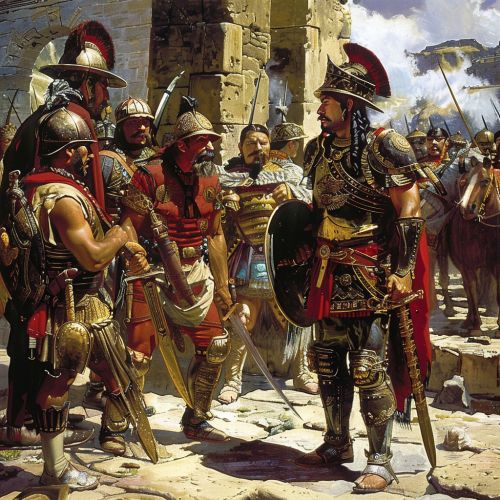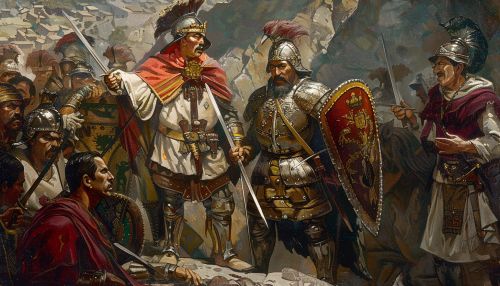Hernando Pizarro
Early Life and Background
Hernando Pizarro was born in 1501 in Trujillo, Spain. He was one of the Pizarro brothers, a family of Spanish conquistadors who played a significant role in the Spanish conquest of the Inca Empire. Hernando was the illegitimate son of Captain Gonzalo Pizarro y Rodríguez de Aguilar and María Alonso. His half-brothers included Francisco Pizarro, the leader of the expedition that conquered the Inca Empire, and Gonzalo Pizarro, who later led a rebellion against the Spanish Crown.
Conquest of the Inca Empire
Hernando Pizarro joined his brother Francisco in the expedition to South America in the early 1530s. The Pizarro brothers, along with their cousin Pedro Pizarro and other Spanish conquistadors, embarked on a mission to conquer the Inca Empire, which was one of the most powerful and wealthy civilizations in the Americas at the time.
The Capture of Atahualpa
One of the pivotal moments in the conquest was the capture of the Inca Emperor Atahualpa in 1532. Hernando played a crucial role in the negotiations and the subsequent ransom of Atahualpa. Despite the Inca emperor's efforts to secure his release by offering a room filled with gold and silver, the Spanish ultimately executed him, leading to the collapse of the Inca resistance.


Battle of Cuzco
Following the execution of Atahualpa, Hernando Pizarro participated in the Battle of Cuzco in 1533, which was a decisive conflict that led to the Spanish control of the Inca capital. Hernando's military prowess and strategic acumen were instrumental in securing victory for the Spanish forces.
Governance and Administration
After the conquest, Hernando Pizarro was appointed as one of the governors of the newly established Spanish territories in Peru. He was responsible for overseeing the administration and exploitation of the vast resources of the region. Hernando's governance was marked by his efforts to consolidate Spanish control and to extract wealth from the conquered lands.
Encomienda System
Hernando implemented the encomienda system, which granted Spanish settlers the right to extract labor and tribute from the indigenous population. This system was highly exploitative and led to significant suffering and population decline among the native peoples. Hernando's role in the administration of the encomienda system has been a subject of historical scrutiny and criticism.
Return to Spain and Imprisonment
In 1536, Hernando Pizarro returned to Spain to defend the actions of his family and to secure royal approval for their conquests. However, upon his return, he faced legal challenges and accusations of misconduct. Hernando was imprisoned for several years as a result of these charges. His imprisonment marked a significant downturn in his fortunes and influence.
Later Life and Legacy
Hernando Pizarro was eventually released from prison, but his later years were marked by relative obscurity compared to his earlier exploits. He lived out the remainder of his life in Spain, passing away in 1578. Hernando's legacy is intertwined with the broader history of the Spanish conquest of the Americas, a period marked by both remarkable achievements and profound tragedies.
